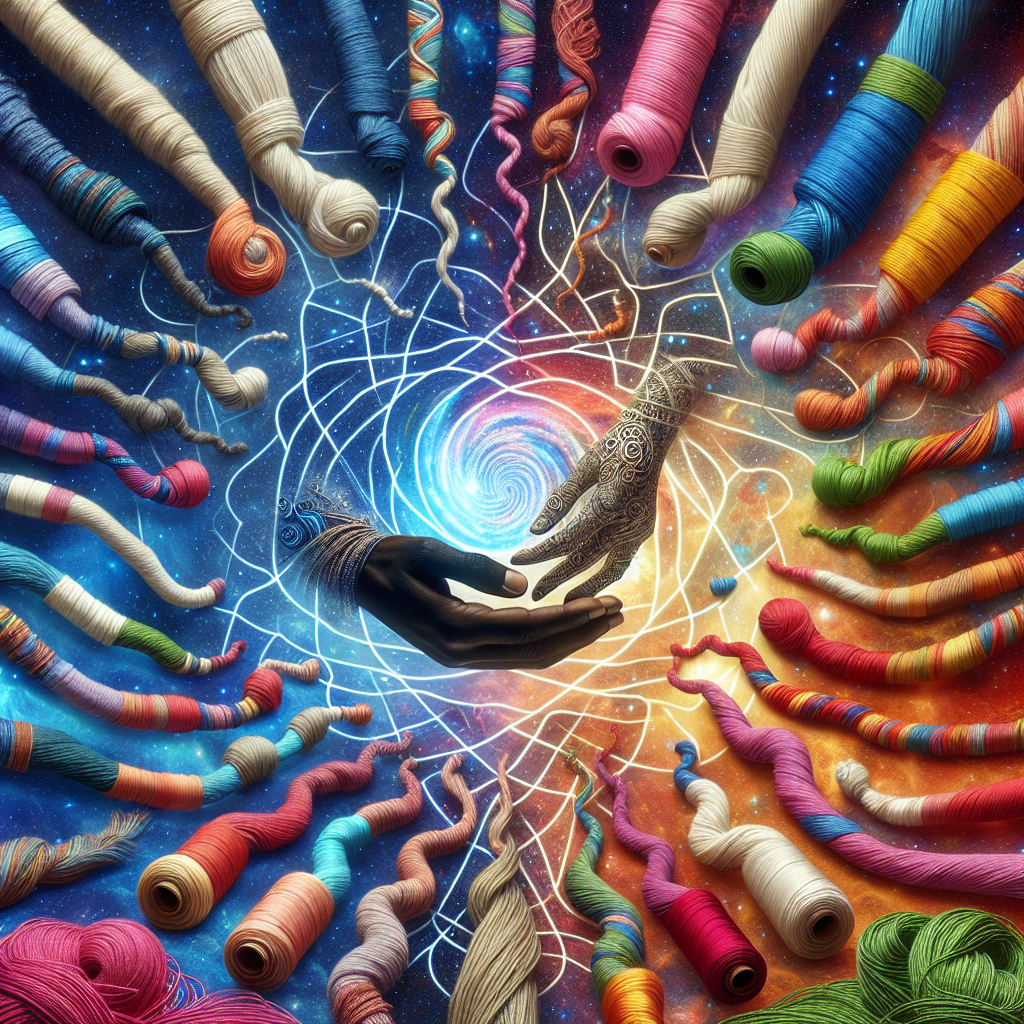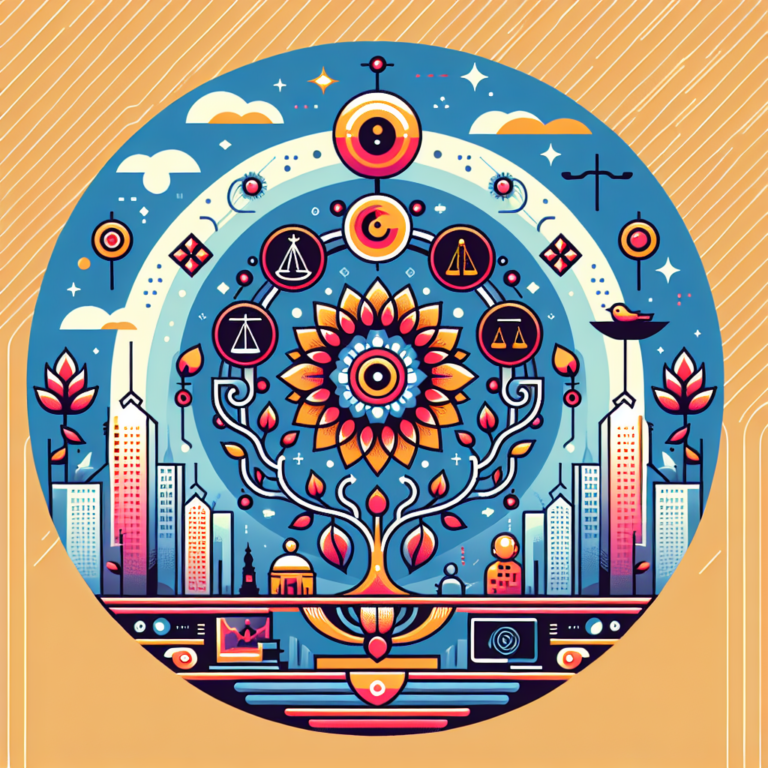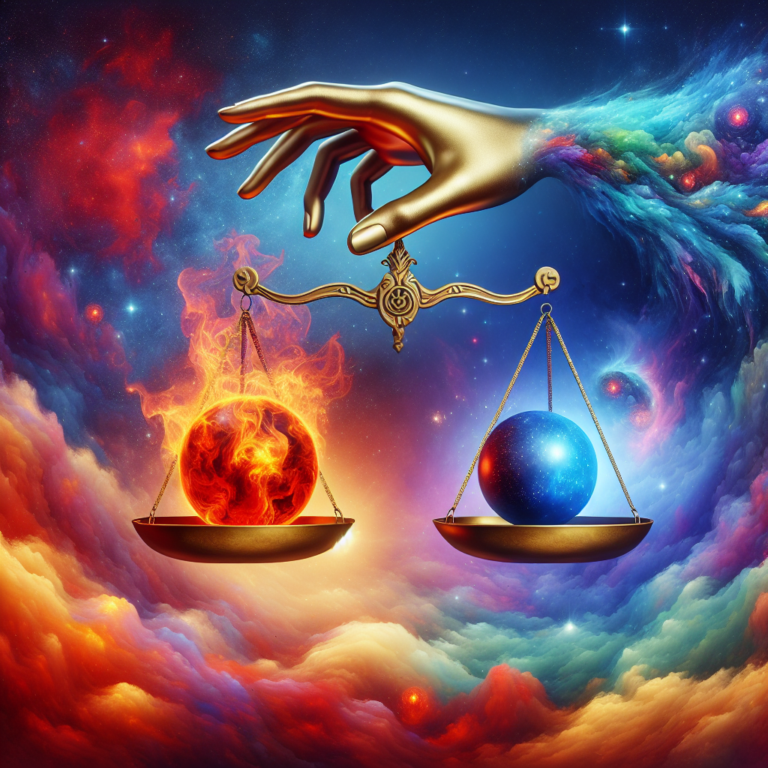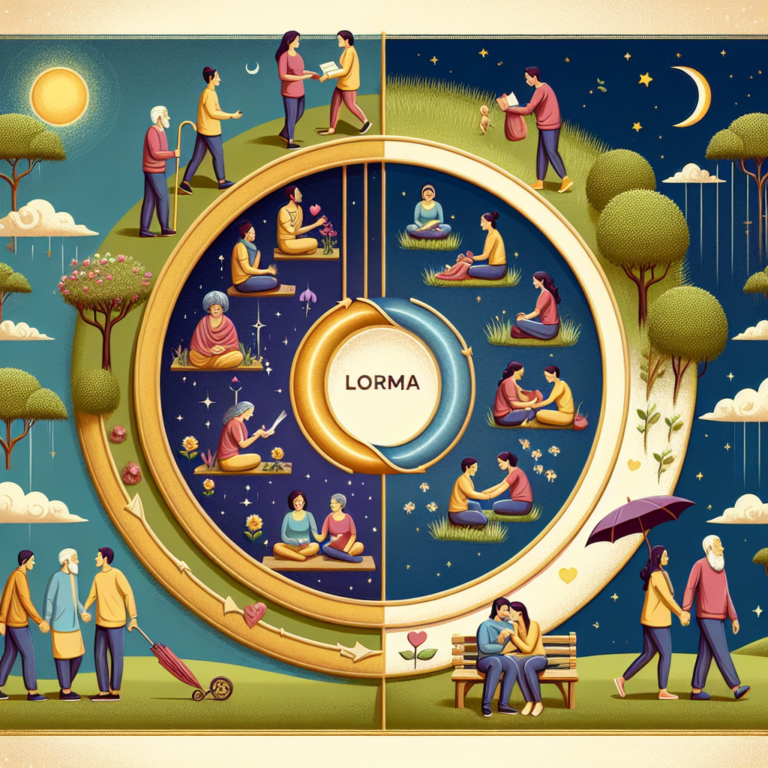In many cultures and philosophies around the world, the concepts of karma and destiny are foundational to understanding existence, purpose, and the nature of reality. Both ideas delve into the interplay between our actions (karma) and the outcomes or life circumstances we experience (destiny). This article explores the nuanced relationship between karma and destiny, the implications of both, and how they shape our lives.
Understanding Karma
Karma, a term derived from the ancient Indian languages, is often interpreted as "action" or "deed." In a broader spiritual context, it refers to the principle of cause and effect, where every action has consequences that ripple through time and space. The essence of karma lies in the moral quality of our actions—good deeds yield positive outcomes, while negative actions lead to adverse consequences. The idea suggests that individuals are not merely passive recipients of fate, but active participants in creating their reality through choices and behaviors.
The belief in karma is prevalent in Hinduism and Buddhism. In these traditions, life is viewed as a cycle of birth, death, and rebirth (samsara), and karma plays a crucial role in determining the conditions of one’s future existences. A good life, marked by virtuous actions, can lead to a better rebirth, while a life filled with wrongdoing can result in suffering and lower realms of existence.
Exploring Destiny
Destiny, on the other hand, is often seen as the predetermined course of events in an individual’s life. It suggests that certain aspects of our lives—such as our birth circumstances, the challenges we face, and the lessons we must learn—are already set before we enter the world. Many people tend to view destiny as something external that happens to them, making it feel inescapable and unchangeable.
The notion of destiny is embedded in various philosophical and religious teachings, where it is considered a divine plan or fate ordained by a higher power. This concept can offer comfort in times of adversity, encouraging individuals to believe that there is a greater purpose or reason behind their challenges.
The Interconnection of Karma and Destiny
The discussions around karma and destiny often raise a fundamental question: Are we the architects of our own lives, or are we mere players in a predetermined script? The truth is that karma and destiny are not mutually exclusive; rather, they are deeply interwoven.
Karma Shapes Destiny: Our actions undoubtedly play a significant role in shaping our futures. The choices we make today lay the groundwork for the scenarios we encounter tomorrow. For instance, if we consistently practice kindness and help others, we may attract goodwill and opportunities that align with our positive actions, manifesting a favorable destiny.
Destiny Provides Context for Karma: Conversely, our circumstances—those aspects that appear to be set in stone—can influence our options for action. Certain elements of our existence, such as family, socio-economic conditions, and unexpected life events, can limit or guide how we choose to act. In this sense, understanding our destiny can illuminate the kinds of karma we may have to work through.
- Navigating Free Will: While karma emphasizes personal accountability and the power of choice, destiny often introduces a sense of inevitability. The paradox here lies in our free will. We all have the capacity to make decisions, yet we are often faced with scenarios that feel out of our control. Thus, the real essence of human experience may be a delicate balance between exercising free will and accepting the unfolding of fate.
Life Lessons from the Dance of Karma and Destiny
Embrace Responsibility: Recognizing that our actions have consequences can empower us to live more consciously. Making ethical and compassionate choices leads not only to positive outcomes for ourselves but also benefits the community around us.
Cultivate Acceptance: Life is full of unpredictability. While we can influence certain outcomes, we must also learn to accept circumstances that are beyond our control. Understanding the role of destiny can provide peace in accepting hardships as part of a greater plan.
Seek Balance: It is vital to navigate between action and acceptance. While striving for goals and working towards better karma, it’s equally important to be present in the moment and trust the process, allowing destiny to unfold naturally.
- Reflect and Learn: Situations brought about by both karma and destiny often come embedded with lessons. Reflecting on our experiences can enhance our understanding of our own patterns, helping us to grow and evolve.
Conclusion
Karma and destiny exemplify the complex tapestry of existence, illustrating how our actions and the circumstances of our lives coalesce to create our experiences. Together, they emphasize the profound interplay between choice and fate. By acknowledging this relationship, we can navigate life with a deeper sense of purpose, making choices that resonate with our values while embracing the unfolding nature of our destinies.
FAQs
1. Is karma always immediate?
Karma does not necessarily operate on an immediate timeline. The effects of actions can manifest over days, months, years, or even across lifetimes, as understood in the context of rebirth.
2. Can karma be altered?
Yes, karma is not fixed. By making conscious choices to act positively, one can create new karmic patterns that may lead to favorable outcomes.
3. Is destiny predetermined?
Destiny is often viewed as a mix of predetermined elements intertwined with the outcomes of our actions. It is influenced by our choices, experiences, and the natural laws of the universe.
4. How do I know if I am living according to my karma?
Self-reflection and mindfulness can help you assess your actions. Notice patterns in your life—are they aligning with your values, or are you facing repeated negative experiences?
5. Can someone have good karma but a difficult life?
Yes, one may experience hardship due to factors beyond their control or karma from past actions. Challenges can be seen as opportunities for growth and understanding rather than purely negative experiences.
It seems like your message was cut off. Could you please provide more details about what kind of prompt you need? Whether it’s for writing, brainstorming, or something else, I’m here to help!, #Karma #Destiny #Interwoven #Threads #Fate #Action, #Karma #Destiny #Interwoven #Threads #Fate #Action, 1735002418, karma-and-destiny-the-interwoven-threads-of-fate-and-action





